
Keith Jarrett is an American jazz and classical music pianist and composer. Jarrett started his career with Art Blakey and later moved on to play with Charles Lloyd and Miles Davis. Since the early 1970s, he has also been a group leader and solo performer in jazz, jazz fusion, and classical music. His improvisations draw from the traditions of jazz and other genres, including Western classical music, gospel, blues, and ethnic folk music.

Walter Dewey Redman was an American saxophonist who performed free jazz as a bandleader and with Ornette Coleman and Keith Jarrett.

The Ballad of the Fallen is a jazz album by bassist Charlie Haden, with arrangements by Carla Bley, that was recorded in 1982 and released in 1983. The album was voted jazz album of the year in Down Beat magazine's 1984 critic's poll. Haden and Carla Bley placed first in that 1984 poll's Acoustic Bass and Composer categories, respectively.

Eyes of The Heart is an album by American pianist Keith Jarrett featuring his "American Quartet", made up of Jarrett himself, Dewey Redman, Charlie Haden and Paul Motian. It was recorded at the Theater am Kornmarkt, Bregenz in Austria in May 1976 and was released in 1979 by ECM Records. The studio album The Survivors' Suite had been recorded one month earlier.
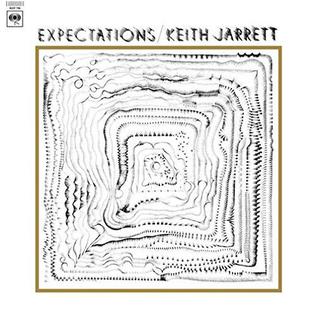
Expectations is an album recorded by Keith Jarrett in 1972 and released on Columbia Records the same year. In addition to Jarrett, musicians on the recording include his "American quartet": Dewey Redman on tenor saxophone, Charlie Haden on bass, and Paul Motian on drums. Also featured are Sam Brown on electric guitar, Airto on percussion, as well as brass and string sections whose members are not credited in the album information. Expectations was produced by George Avakian, Jarrett's manager since 1966.

Fort Yawuh is a jazz album by American pianist and composer Keith Jarrett. Originally released in 1973 by Impulse! Records, it marks the beginning of the label’s relationship with Jarrett. Recorded live at the Village Vanguard on February 24, 1973 by Jarrett's "American Quartet": Dewey Redman on tenor saxophone, Charlie Haden on acoustic bass, Paul Motian on drums, plus percussionist Danny Johnson. The title of the album is an anagram of "Fourth Way," a reference to George Gurdjieff's fourth path of self-awareness.

Treasure Island is an album recorded in February 1974 by Keith Jarrett and originally released by Impulse! in 1974. It features Jarrett's later-to-be-called "American Quartet" plus guitarist Sam Brown, and percussionists Guilherme Franco and Danny Johnson. Two months after recording Treasure Island, in April 1974, Jarrett would enter a studio in Norway to record Belonging with a group of Scandinavian players, later called Jarrett's "European group".

Byablue is one of the last albums recorded by the so-called 'American Quartet' of jazz pianist Keith Jarrett. It was recorded in October 1976 in two sessions that also helped produce the album Bop-Be. Released on the Impulse label in 1977, it features performances by Jarrett, Dewey Redman, Charlie Haden, and Paul Motian. Musically speaking, even though the album Eyes of the Heart made it last to the market, Byablue and Bop-Be document the swan song of Jarrett's American Quartet in several ways, but most of all the inclusion of compositions by members other than Jarrett himself deliver another taste. While that did not happen before, for what would be the quartet's final recording sessions, Jarrett requested that band members contribute with their own compositions. Byablue consisted primarily of Paul Motian's pieces, while Bop-Be included Redman and Haden's contributions.
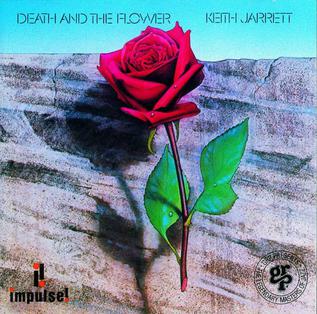
Death and the Flower is an album recorded by Keith Jarrett in October 1974 during two sessions that also produced Back Hand. Released in 1975, the disc features the pianist's "American Quartet" with percussionist Guilherme Franco.

Mysteries is an album by jazz pianist Keith Jarrett recorded in two sessions in December 1975. Originally released by Impulse! in 1976, it features performances by Jarrett's 'American Quartet' of Dewey Redman, Charlie Haden and Paul Motian, along with Guilherme Franco on percussion. The December 1975 "Mysteries" sessions also produced the album Shades.
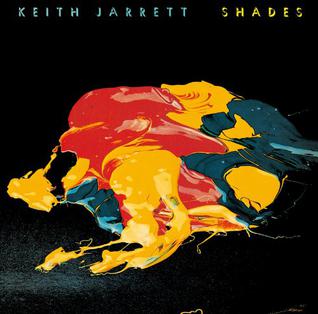
Shades is the fifth album on the Impulse label by jazz pianist Keith Jarrett. Originally released in 1976, it features performances by Jarrett's 'American Quartet', which included Dewey Redman, Charlie Haden and Paul Motian with Guilherme Franco added on percussion.

Back Hand is an album by American jazz pianist Keith Jarrett recorded in two sessions in October 1974 that also gave way to the album Death and the Flower. Originally released in 1975 by Impulse!, it features performances by Jarrett's American Quartet, which included Dewey Redman, Charlie Haden and Paul Motian along with Guilherme Franco added on percussion. For a long time the album remained a relatively obscure work until it was resuscitated by Impulse! years later.
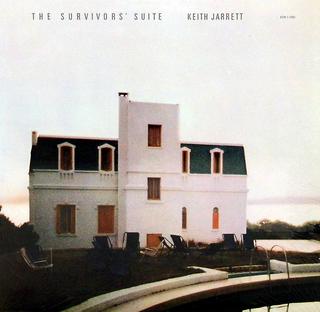
The Survivors' Suite is an album by jazz pianist Keith Jarrett featuring his 'American Quartet' ensemble which included Dewey Redman, Charlie Haden, and Paul Motian. It represents the first album they recorded for ECM and in terms of music it has been widely considered to find the group at its pinnacle. Initially published in January 1977, vinyl was reissued in April 2017 as audiophile pressing taken from the original analog tapes.

Somewhere Before is a live album by pianist Keith Jarrett recorded on August 30 and 31, 1968, at Shelly's Manne-Hole in Hollywood, California with his first trio, composed of Charlie Haden (bass) and Paul Motian (drums).

The Mourning of a Star is an album by Keith Jarrett recorded in 1971 with his regular working trio and released that same year by Atlantic Records. On five dates in July and August 1971 Jarrett went into the studio with Haden and Motian and, along with Dewey Redman on tenor saxophone, produced enough material for three albums, The Mourning of a Star, El Juicio and Birth. Although Dewey Redman does not appear on this album, the July and August 1971 sessions marked the metamorphosis of Jarrett's first trio into what would be his future quartet.

Birth is an album by Keith Jarrett recorded in 1971 and released the next year. On five dates in July and August 1971 Jarrett went into the studio with his trio augmented with Dewey Redman on tenor saxophone and produced enough material for three albums, The Mourning of a Star, El Juicio and Birth. These albums marked the emergence of what would later be called Jarrett's "American quartet."
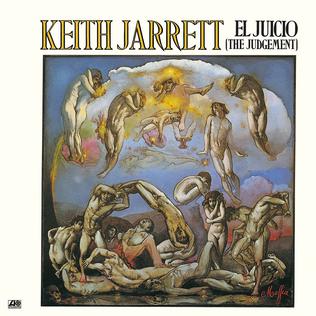
El Juicio is an album by pianist Keith Jarrett recorded in 1971 and released in 1975. On four days in July and one in August 1971 Jarrett went into the Atlantic Recording Studios with his trio plus Dewey Redman on tenor saxophone and produced enough music for three albums The Mourning of a Star, El Juicio and Birth. Accordingly, the 1971 sessions mark the emergence of what would be later called Jarrett's "American quartet."
Over the years, Keith Jarrett has recorded in many different settings: jazz piano trio, classical and baroque music, improvised contemporary music, solo piano, etc. Well known for his tremendous impact on the piano and jazz scene, as a composer, multi-instrumentalist, and first class improviser, Keith Jarrett's original output embraces many different musical styles and spans a period of almost 50 years, comprising a generous production of more than 100 albums.
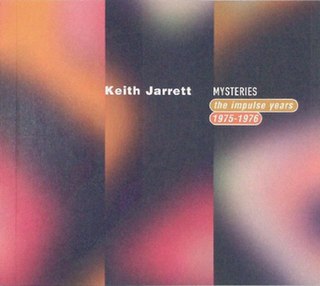
Mysteries: The Impulse Years 1975-1976 is a four CD collection of the Keith Jarrett albums Mysteries, Shades, Byablue and Bop-Be. The set was released in 1996 by Impulse! Records and in 1997 by Aris / MCA. Previously unreleased alternate takes are present on each disc.

The Impulse Years: 1973-1974 is a 5-CD box set of Keith Jarrett albums, comprising Fort Yawuh, Treasure Island, Death and The Flower and Back Hand, plus previously unissued material. The set was released in 1997 by Impulse! Records and in 1998 by Universal / MCA.



















